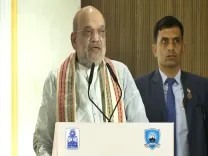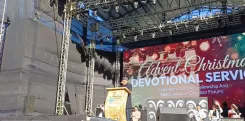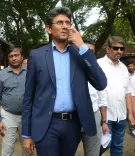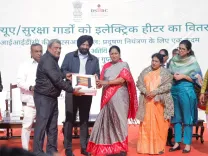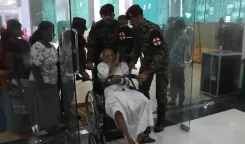Why is Pakistan's Defence Minister Ridiculed for Calling Madrassa Students 'Second Line of Defence'?
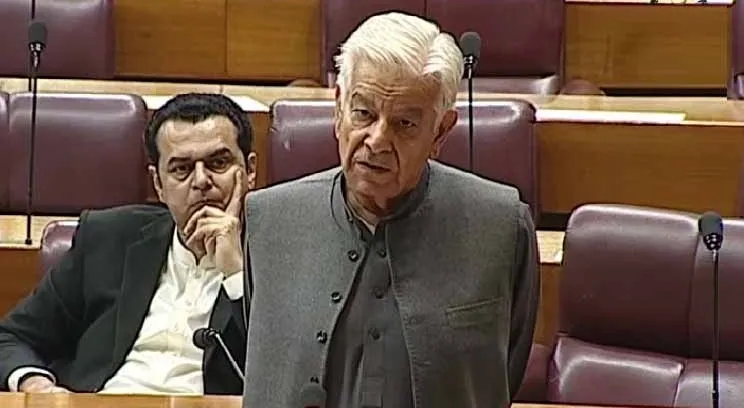
Synopsis
Key Takeaways
- Khawaja Asif's statements provoke national debate.
- Concerns over the portrayal of madrassas in Pakistan.
- Critics highlight implications for national security and extremism.
- Public perception of defence leadership is at stake.
- International image of Pakistan is affected.
Islamabad, May 10 (NationPress) Pakistan's Defence Minister Khawaja Asif is making headlines for reasons that are less than favorable. His controversial remarks on an American news platform, where he referenced social media as evidence, and his assertion that students from madrassas (religious institutions) represent the nation’s second line of defence, have left many in Pakistan bewildered. This has raised questions regarding his qualifications for the role of defence minister.
In a recent address to the National Assembly, Asif proclaimed that madrassa students are poised to act as the country’s second line of defence when necessary. He stated, "There’s no doubt they are our second line of defence; the youths studying there will be utilized as required 100 percent when the time arises." This declaration, made amidst heightened tensions with India, has provoked much thought about the rationale behind considering these students as a security asset.
Many are questioning why the defence minister would categorize madrassa students in such a manner or involve them in national security discussions. "There’s no one in parliament who wouldn’t find this statement distasteful. It tarnishes Pakistan’s image globally, especially when religious seminaries are often viewed as places promoting radicalization in the name of Jihad and freedom struggles," noted rights activist Tahira Abdullah.
She further expressed disbelief at a defence minister making such statements during a time when Pakistan confronts India over accusations of promoting a Hindutva supremacy agenda and anti-Muslim sentiments.
Another activist criticized Asif for his divisive rhetoric, suggesting he is intentionally distinguishing madrassa students in a way that may exploit religious conflicts. "Asif's remarks reflect a mindset that perceives madrassa children as potential jihadists, likely to be mobilized against territorial adversaries like India under the guise of religious distinctions," remarked Saeeda Diep, founder of the NGO Centre for Peace and Secular Studies (CPSS).
Diep emphasized that such perspectives contribute to Pakistan's reputation as a haven for religious extremists, with madrassas being labeled as terror-producing institutions rather than legitimate educational facilities.
Asif had earlier acknowledged Pakistan's historical support for terrorist organizations in a candid interview with a prominent British network, attributing some responsibility to Cold War-era alliances with the West in Afghanistan. "We have been doing this dirty work for the US for the past three decades, alongside our Western allies," he confessed.






